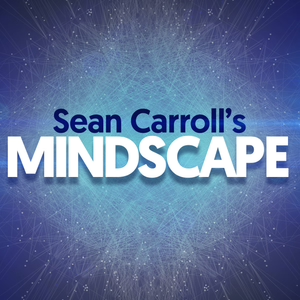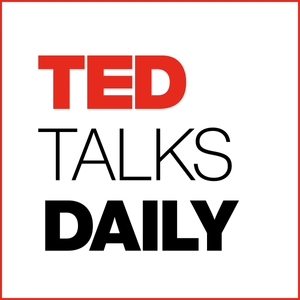
Episode 34: Does Reading Harry Potter Make You Moral? (with Will Wilkinson)
Explicit content warning
10/28/13 • 74 min
1 Listener
Special guest Will Wilkinson joins the podcast to talk about whether fiction makes us better people, and to discuss his recent Daily Beast article that trashed Dave's profession and livelihood. Also, Dave and Tamler try to make sense of Ancient Greek justice in a myth about incest, adultery, daughter-killing, husband-killing, matricide, cannibalism, and trash talking to disembodied heads.
Links- Agamemnon [wikipedia.org]
- Will Wilkinson [wikipedia.org]
- The Will Wilkinson article that hurt David's feelings [thedailybeast.com]
- Hurt Feelings by Flight of the Concords [youtube.com]
- Does great literature make us better? by Gregory Currie [nytimes.com]
- Reading literature makes us smarter and nicer by Annie Murphy Paul [time.com]
- Want to learn how to think? Read fiction by Tom Jacobs [psmag.com]
- In Pursuit of Happiness Research [pdf] by Will Wilkinson
Special Guest: Will Wilkinson.
Special guest Will Wilkinson joins the podcast to talk about whether fiction makes us better people, and to discuss his recent Daily Beast article that trashed Dave's profession and livelihood. Also, Dave and Tamler try to make sense of Ancient Greek justice in a myth about incest, adultery, daughter-killing, husband-killing, matricide, cannibalism, and trash talking to disembodied heads.
Links- Agamemnon [wikipedia.org]
- Will Wilkinson [wikipedia.org]
- The Will Wilkinson article that hurt David's feelings [thedailybeast.com]
- Hurt Feelings by Flight of the Concords [youtube.com]
- Does great literature make us better? by Gregory Currie [nytimes.com]
- Reading literature makes us smarter and nicer by Annie Murphy Paul [time.com]
- Want to learn how to think? Read fiction by Tom Jacobs [psmag.com]
- In Pursuit of Happiness Research [pdf] by Will Wilkinson
Special Guest: Will Wilkinson.
Previous Episode

Episode 33: Monkeys, Smurfs, and Human Conformity (With Laurie Santos)
Special guest Laurie Santos (Psychology, Yale) joins us to talk about what animal cognition can tell us about human nature. Why are other primates better at resisting the misleading influence of others than humans? Is conformity a byproduct of our sophisticated cultural learning capacities? Are we more like Chimpanzees or Bonobos? Why does Dave spend so much time writing Smurf fan fiction? [Smurf you, Tamler. -dap]. Also, Dave and Tamler talk about a scathing review of Malcolm Gladwell's new book, and Eliza Sommers poses the question of the day. This was a fun one.
Links- Comparative Cognition Laboratory [yale.edu]
- Laurie Santos and Jesse Bering on The Mind Report [bloggingheads.tv]
- Buy Jesse Bering's latest book "Perv: The Sexual Deviant in All of Us" [amazon.com affiliate link]
- Philospher's Pipe (a directory of podcasts related to philosophy) [philosopherspipe.com]
- Smurfette [wikipedia.org]
- Horner, V., & Whiten, A. (2005). Causal knowledge and imitation/emulation switching in chimpanzees (Pan troglodytes) and children (Homo sapiens). Animal cognition, 8(3), 164-181.
- Kovács, Ã. M., Téglás, E., & Endress, A. D. (2010). The social sense: Susceptibility to othersâ€TM beliefs in human infants and adults. Science, 330(6012), 1830-1834.
- True Bonobo Love [youtube.com]
- Bonobos vs. Chimps [youtube.com]
- What does the fox say? [youtube.com]
- "The Trouble With Malcolm Gladwell." by Christopher Chabris [Slate.com].
- "Christopher Chabris Should Calm Down" by Malcolm Gladwell [Slate.com]
Special Guest: Laurie Santos.
Next Episode

Episode 35: Douchebags and Desert
Dave and Tamler talk about the influence of character judgments on attributions of blame. What is the function of the blame--to assign responsibility or to judge a person's character? Is it fair that we blame douchebags more than good people who commit exactly the same act, or is it yet another cognitive bias that should be avoided? Plus we delve into the Richie Incognito hazing story (maybe a little early since the story has developed) and Tamler tries to figure out how to teach the Gospels to students who know roughly 100 times as much about them than he does.
Links- "The Miami Dolphins and Everything that Will Never Make Sense." by Andrew Sharp. (grantland.com)
- Interview with Richie Incognito (youtube.com)
- Gospel of Matthew [wikipedia.org]
- Synoptic Gospels [wikipedia.org]
- Pizarro, D.A. & Tannenbaum, D. (2011). Bringing character back: How the motivation to evaluate character influences judgments of moral blame. In M. Mikulincer & Shaver, P. (Eds) The Social psychology of morality: Exploring the causes of good and evil. APA Press.
- A recent chapter on character and moral psychology that David wrote (with Roy Baumeister) just to be able to talk about comics and porn : Superhero Comics as Moral Pornography. In R. Rosenberg (Ed.) Our Superheroes, Ourselves. Oxford University Press.
- Tannenbaum, D., Uhlmann, E. L., & Diermeier, D. (2011). Moral signals, public outrage, and immaterial harms. Journal of Experimental Social Psychology, 47(6), 1249-1254.
If you like this episode you’ll love
Episode Comments
Generate a badge
Get a badge for your website that links back to this episode
<a href="https://goodpods.com/podcasts/very-bad-wizards-171187/episode-34-does-reading-harry-potter-make-you-moral-with-will-wilkinso-9635715"> <img src="https://storage.googleapis.com/goodpods-images-bucket/badges/generic-badge-1.svg" alt="listen to episode 34: does reading harry potter make you moral? (with will wilkinson) on goodpods" style="width: 225px" /> </a>
Copy




